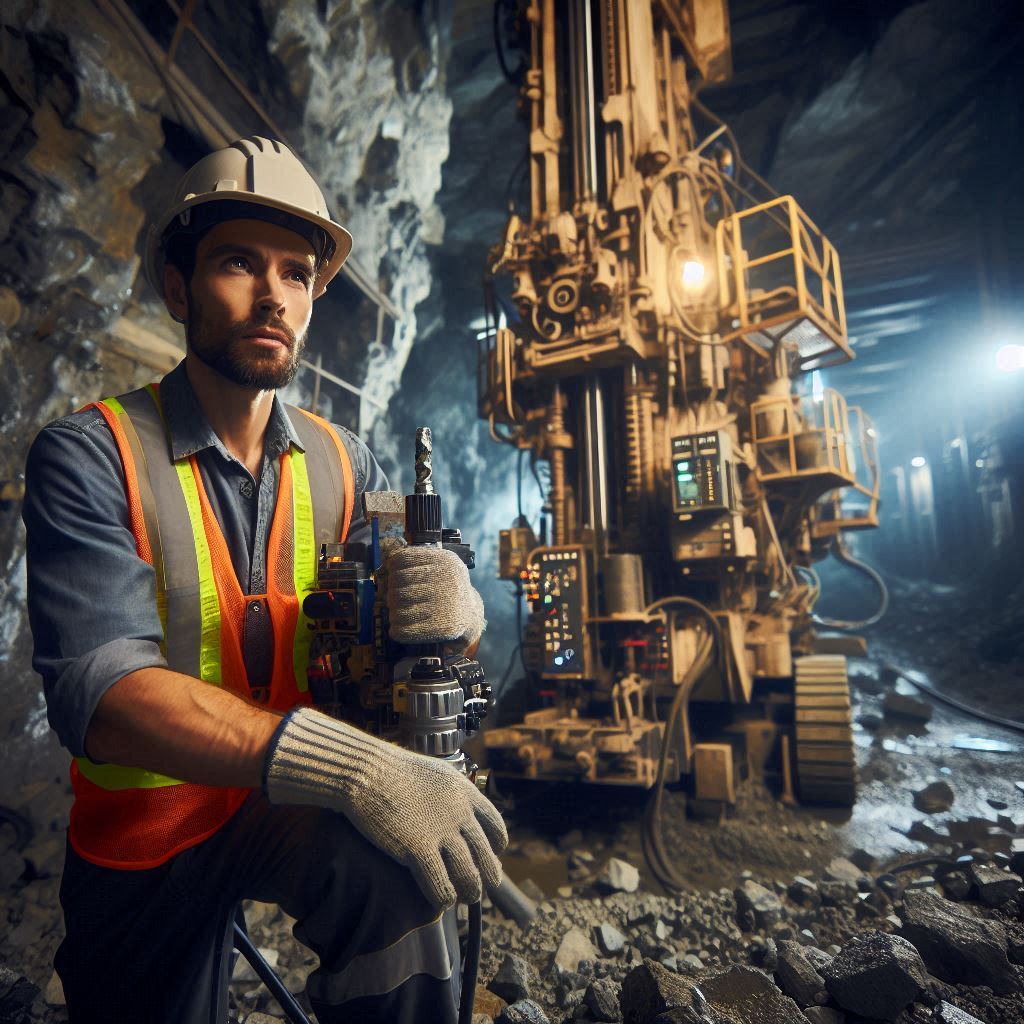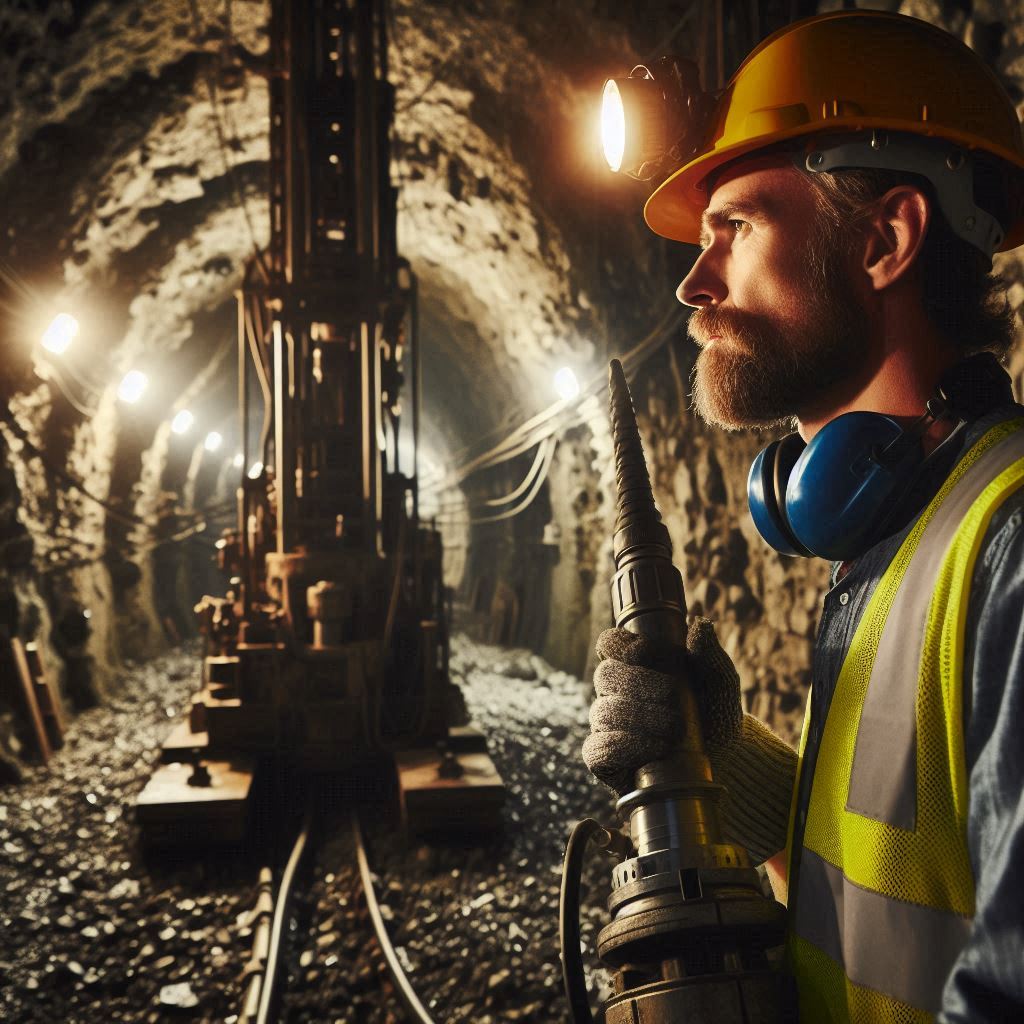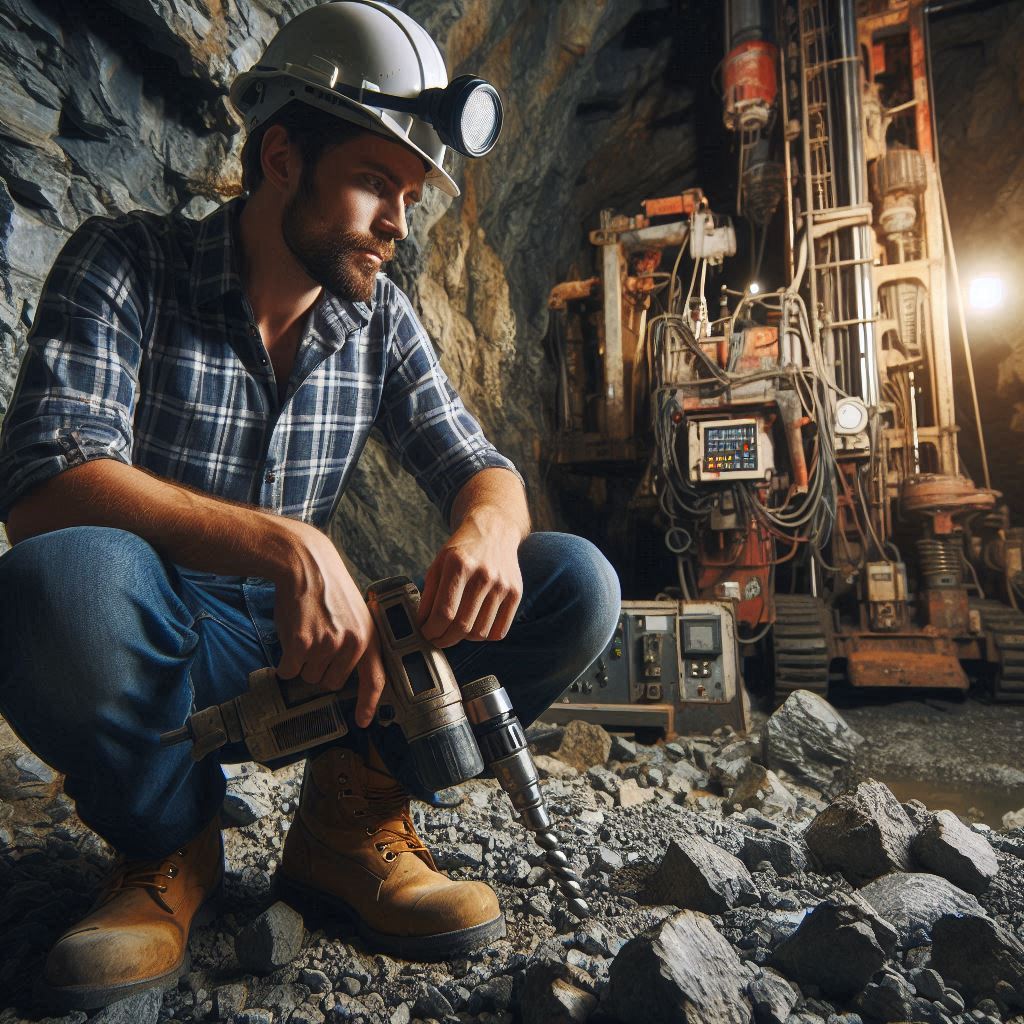Introduction
Mining engineers play a crucial role in various industries by designing safe and efficient mining operations.
Their expertise is essential for extracting valuable minerals from the earth while minimizing environmental impact.
With the increasing demand for minerals worldwide, the need for skilled mining engineers is on the rise.
Their work involves planning, designing, and overseeing the construction of mines for coal, metals, and other minerals.
They also ensure that mining operations are carried out in compliance with safety regulations and environmental standards.
As the global demand for minerals continues to grow, mining engineers are in high demand to support expanding exploration and extraction activities.
This trend is driving up the salaries of mining engineers, making it a lucrative career choice for those with the necessary skills and qualifications.
Factors Affecting Mining Engineer Salary
Several factors influence the salary range for mining engineers, including their level of experience, educational background, and the specific industry they work in.
Mining engineers with advanced degrees and specialized certifications tend to command higher salaries.
Additionally, the location of the mining project can impact a mining engineer’s salary.
For example, mining engineers working in remote areas or international locations may receive higher compensation due to the challenging working conditions and need for specialized expertise.
Another significant factor that can affect a mining engineer’s salary is the size and complexity of the mining operation they oversee.
Large-scale mining projects require skilled engineers to manage the operations efficiently, leading to higher salary potential.
Salary Range for Mining Engineers
According to the Bureau of Labor Statistics, the median annual salary for mining and geological engineers was $93,800 in May 2020.
The top 10% of earners in this field made over $150,270, while the lowest 10% earned less than $58,080 annually.
However, it’s essential to note that salaries for mining engineers can vary significantly based on the factors mentioned above.
Experienced mining engineers with advanced degrees and specialized skills can earn six-figure salaries, especially in high-demand sectors like metal ore mining and oil and gas extraction.
Education and Experience Requirements for Mining Engineers
Educational background needed to become a mining engineer, such as a bachelor’s degree in mining engineering or related fields
To become a mining engineer, a solid educational foundation is crucial.
Typically, this involves earning a bachelor’s degree in mining engineering or a related field.
Many universities offer specialized programs focusing on mining, geology, and environmental considerations.
This educational background equips students with the necessary theoretical knowledge and technical skills required for the profession.
In addition to formal education, hands-on experience plays a significant role.
Internships or entry-level positions in the mining industry are highly valuable.
These opportunities provide practical experience that enhances understanding of real-world mining operations.
Internships allow students to apply theoretical knowledge in a practical setting, working alongside experienced engineers and gaining insight into industry practices.
Experience through internships often leads to better job prospects after graduation.
Employers value candidates who have already had exposure to the field.
This experience helps in understanding the complexities of mining projects and the daily challenges faced by engineers.
Moreover, it provides a chance to develop essential skills such as problem-solving, teamwork, and project management.
Overall, combining a strong educational background with practical experience is key to a successful career in mining engineering.
This blend of theory and hands-on practice prepares individuals for the demands of the industry and enhances their career prospects.
Education and Experience Requirements for Mining Engineers
The pathway to becoming a mining engineer typically starts with a bachelor‘s degree in mining engineering or a closely related field.
This degree provides the foundational knowledge required to understand mining processes, equipment, and safety protocols.
Courses often include geology, thermodynamics, and fluid dynamics, which are essential for designing and managing mining operations.
Hands-on experience is equally important.
Internships or entry-level positions in the mining sector offer practical insights into the industry.
These positions help aspiring engineers learn about the operational aspects of mining, from equipment handling to safety procedures.
Such experience is invaluable, as it bridges the gap between academic learning and real-world application.
Engaging in internships also helps build a professional network.
Connections made during these early career stages can lead to job opportunities and mentorship.
Furthermore, this experience enhances a resume, making candidates more attractive to potential employers.
The practical skills and industry knowledge gained are often preferred by employers over purely academic qualifications.
Generally, a combination of a relevant degree and practical experience is essential for a successful career in mining engineering.
This blend ensures that individuals are well-prepared to meet the challenges of the industry and excel in their roles.
Read: Biomedical Engineering: Regulatory Affairs
Average salary range for entry-level mining engineers
Average Starting Salary for Mining Engineers
For mining engineers just starting their careers, the average salary ranges between $60,000 and $80,000 annually.
This figure is based on data from various sources, including industry surveys and salary databases.
Entry-level mining engineers with 0-3 years of experience typically earn within this range.
Starting salaries can vary depending on several factors, including geographical location, industry sector, and the specific employer.
Those working in more remote or challenging locations might receive higher starting salaries to compensate for the difficult conditions.
Factors Influencing Entry-Level Mining Engineer Salaries
Several factors influence the starting salary for entry-level mining engineers.
Location plays a crucial role, as salaries can vary significantly across different regions.
Mining engineers in high-demand areas or regions with substantial mining operations might earn more than their counterparts in less active areas.
Additionally, the industry sector affects salary levels.
Mining engineers working in sectors with higher profitability or specialized fields may see higher starting salaries compared to those in less lucrative sectors.
Educational background and relevant internships also impact entry-level salaries.
Engineers with advanced degrees or specialized training might command higher starting salaries.
Certifications and relevant work experience, even at an entry level, can enhance salary prospects.
Moreover, the size and financial health of the employing company can influence starting pay.
Larger companies or those with significant mining operations often offer more competitive salaries.
In summary, while the average starting salary for mining engineers ranges from $60,000 to $80,000, various factors can cause this figure to fluctuate.
Location, industry sector, educational background, and company size all play critical roles in determining the starting salary.
Understanding these factors can help prospective mining engineers set realistic expectations for their entry-level earnings and guide them in making informed career decisions.
Read: Graduate Studies in Biomedical Engineering
Factors influencing mining engineer salaries
When it comes to determining the salary of a mining engineer, several factors come into play. Here are the key factors that influence how much a mining engineer can earn:
Specialized Skills
- Having specialized skills in areas such as geotechnical engineering or mineral processing can significantly impact a mining engineer’s earning potential.
- Engineers with expertise in cutting-edge technologies like drone mapping or automation may command higher salaries due to the demand for these skills.
- Certifications such as the Professional Engineer (PE) license or specialized training from reputable institutions can also boost a mining engineer’s salary.
Advanced Degrees
- Pursuing advanced degrees such as a Master’s or Ph.D. in mining engineering can open up opportunities for higher-paying positions in research or academia.
- Employers often value candidates with advanced degrees for their in-depth knowledge and research capabilities, which can lead to better compensation packages.
Years of Experience
- As with any profession, experience plays a crucial role in determining a mining engineer’s salary. Engineers with more years in the field typically earn higher salaries.
- Junior mining engineers may start with lower salaries, but as they gain experience and expertise, they can negotiate for better pay and benefits.
Job Location
- The location of the job can have a significant impact on a mining engineer’s salary. Engineers working in remote or international locations may receive higher compensation.
- Cities with a high cost of living or in regions with a booming mining industry often offer better salaries to attract and retain top talent in the field.
Industry Sector
- The industry sector in which a mining engineer works can also influence their salary levels. Engineers in lucrative sectors like oil and gas extraction may earn more.
- Different industries may have varying demands for mining engineers, with some sectors offering higher salaries to address skills shortages or competitive markets.
Overall, mining engineer salaries can vary widely based on these factors, and it’s essential for professionals in the field to consider these variables when negotiating compensation packages or exploring new career opportunities.
Read: Biomedical Engineering: Impact on Public Health

Salary growth potential for mining engineers
When considering a career as a mining engineer, one important factor to take into account is the salary growth potential over time.
As mining engineers gain more experience and take on higher-level roles, their earning potential typically increases significantly.
Let’s take a closer look at the typical salary progression for mining engineers and the opportunities for advancement.
Salary Progression for Mining Engineers
- Entry-Level Mining Engineer: When starting out in the field, entry-level mining engineers can expect to earn an average salary of around $65,000 to $75,000 per year. This initial salary provides a strong foundation for future growth.
- Mid-Level Mining Engineer: As mining engineers gain 5-10 years of experience in the industry, they can expect a significant bump in their salary. Mid-level mining engineers typically earn around $80,000 to $100,000 annually, reflecting their increased expertise and responsibilities.
- Senior Mining Engineer: With 10+ years of experience, senior mining engineers are often in leadership positions and oversee major projects. Their average salary ranges from $100,000 to $150,000 per year, highlighting the value of their experience and expertise.
Opportunities for Advancement
- Project Manager: Many mining engineers advance to roles as project managers, where they oversee large-scale mining projects from start to finish. Project managers can earn salaries ranging from $100,000 to $150,000 or more, depending on the size and scope of the projects they manage.
- Executive Leadership: Some mining engineers pursue opportunities in executive leadership, such as becoming a Chief Operating Officer (COO) or Chief Executive Officer (CEO) of mining companies. These roles come with significant responsibilities but also offer substantial salaries, often exceeding $200,000 per year.
- Consulting and Entrepreneurship: Another avenue for advancement for mining engineers is to start their own consulting firm or mining company. By leveraging their expertise and industry connections, mining engineers can create lucrative business opportunities for themselves and potentially earn salaries well into the six-figure range.
In review, the salary growth potential for mining engineers is substantial, with opportunities for advancement into higher-paying roles such as project manager, executive leadership, and entrepreneurship.
By gaining experience and taking on challenging projects, mining engineers can significantly increase their earning potential and build a successful career in the mining industry.
Read: Biomedical Engineer: Working in Healthcare Tech
Regional Variations in Mining Engineer Salaries
Compare Average Salaries for Mining Engineers in Different Regions or Countries
Mining engineer salaries vary significantly based on location.
In the United States, mining engineers earn an average annual salary of approximately $95,000.
This figure can rise to $120,000 in regions with high demand, such as Alaska or Nevada.
In Australia, mining engineers earn between $110,000 and $130,000 annually.
The high salaries in Australia reflect the country’s booming mining industry and high cost of living.
Conversely, in countries like India and South Africa, mining engineers earn considerably less.
In India, salaries average around $40,000 per year, while in South Africa, they range from $50,000 to $70,000.
Cost of living heavily influences these salary differences.
For instance, while salaries in high-demand areas like Western Australia are higher, the cost of living is also elevated.
Therefore, the higher salary compensates for the increased expenses.
In contrast, lower salaries in countries with lower living costs often mean that purchasing power remains relatively consistent.
Industry demand also plays a crucial role in salary variations.
Countries with thriving mining sectors offer higher salaries to attract skilled professionals.
Potential for Relocation or Remote Work to Access Higher-Paying Roles in the Mining Industry
Relocation can significantly impact a mining engineer’s salary.
Moving to high-demand areas or countries with booming mining industries often results in increased earnings.
For example, engineers who relocate to remote regions like Northern Canada or the Australian Outback may enjoy substantial salary boosts.
These locations often offer higher wages to compensate for harsh living conditions and isolation.
Remote work also presents opportunities for higher-paying roles.
With advancements in technology, some mining engineering tasks can be performed remotely.
This flexibility allows engineers to work for companies based in higher-paying regions without relocating.
Remote work can also help mining engineers balance work-life demands, especially if they are based in areas with less intense industry competition.
However, remote opportunities in mining engineering are less common compared to other fields.
In summary, regional variations in mining engineer salaries reflect differences in cost of living and industry demand.
Engineers who are willing to relocate or explore remote work options can access higher-paying roles and potentially enhance their overall earning potential.
Delve into the Subject: Wind Turbine Technician Job Interview Questions
Find Out More: Key Differences Between Software and Computer Engineering
Bonus and benefit packages for mining engineers
Common bonus structures and benefits
- Performance-based incentives are a common bonus structure for mining engineers. Companies may offer bonuses based on achieving production targets or safety milestones.
- Profit-sharing is another popular benefit for mining engineers. When the company performs well financially, employees may receive a share of the profits as a bonus.
- Health insurance is typically included in the benefits package for mining engineers. This coverage helps employees pay for medical expenses and stay healthy.
Additional perks to enhance total compensation
- Company vehicles are often provided to mining engineers, especially those who work in remote locations. Having a company vehicle can save employees money on transportation costs.
- Travel opportunities may be part of the benefit package for mining engineers. This could involve visiting different mine sites or attending conferences and seminars related to the industry.
- Stock options are sometimes offered to mining engineers as an additional benefit. This allows employees to purchase company stock at a discounted price, potentially increasing their total compensation over time.
- Educational assistance programs can also be valuable perks for mining engineers. Some companies offer tuition reimbursement or funding for professional development courses to help employees further their education and skills.
- Retirement savings plans, such as 401(k) or pension plans, are often provided to mining engineers. These plans help employees save for retirement and secure their financial future.
- Flexible work arrangements, such as telecommuting or flexible schedules, can be attractive benefits for mining engineers. These options allow employees to achieve a better work-life balance.
Overall, mining engineers can benefit from a variety of bonus structures and perks that enhance their total compensation and make their job more rewarding.
Transform Your Career Today
Unlock a personalized career strategy that drives real results. Get tailored advice and a roadmap designed just for you.
Start NowYou Might Also Like: Common Challenges Faced by Environmental Engineers
Conclusion
After exploring the earning potential of mining engineers, it is evident that this profession offers lucrative salaries.
The median salary for mining engineers is around $91,160 per year, with top earners making well over $136,800 annually.
These figures make mining engineering one of the highest-paying engineering fields.
Considering the steady demand for minerals and metals worldwide, the job outlook for mining engineers remains promising.
As global population growth and technological advancements drive the need for raw materials, mining engineers will continue to play a crucial role in extracting these resources sustainably and efficiently.
Aspiring professionals should take into account the long-term benefits and opportunities available in the mining industry.
With the potential for career advancement, specialized roles, and international work opportunities, a career in mining engineering can be both financially rewarding and personally fulfilling.
Furthermore, mining engineers can contribute to sustainable practices, environmental stewardship, and community development through their work.
By embracing innovation, embracing new technologies, and promoting responsible mining practices, mining engineers can make a positive impact on society and the environment.
In closing, mining engineering offers competitive salaries, diverse career paths, and the chance to make a difference in the world.
Aspiring professionals should consider the long-term prospects and opportunities available in this dynamic and essential industry.




